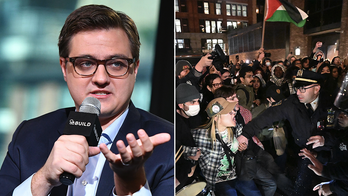The Washington Post has issued an editor's note acknowledging that its front page coverage of the Israel-Hezbollah escalation lacked adequate context, portraying Israel as the aggressor rather than Hezbollah, which launched a deadly rocket attack that killed 12 teenagers and children in Israel.
The Washington Post's controversial front page on Monday, July 29th, sparked intense backlash for its portrayal of the Israel-Hezbollah escalation. The page featured a large image of Israelis mourning the death of an 11-year-old victim of Hezbollah's rocket attack, accompanied by the headline "Israel Hits Targets In Lebanon." Many criticized the headline for failing to provide adequate context, suggesting that Israel was the aggressor rather than Hezbollah, the terrorist group that initiated the attack.
In response to the criticism, the Washington Post published an editor's note on Tuesday, admitting that the front page "did not provide adequate context." The Post editors acknowledged that the headlines should have noted that the Israeli strikes were a response to the Hezbollah rocket attack that killed 12 teenagers and children in the Israeli-controlled Golan Heights.

Washington Post Admits to Misleading Front Page on Israel-Hezbollah Escalation
The criticized headline prompted widespread backlash from individuals and organizations across the political spectrum. Rep. Ritchie Torres, D-N.Y., reacted on social media, stating that the front page image depicted "a child murdered by Hezbollah," while the headline "portrays Israel, not Hezbollah, as the aggressor." The Israel Defense Forces (IDF) also criticized the Post's coverage, posting on social media: "You can see grieving family members burying children murdered by Hezbollah in the Madjal Shams massacre. If by chance you understood anything else from their headline, you might not be the problem."
Critics of the Post's front page argued that it distorted the escalation by focusing on Israel's retaliation while downplaying the initial Hezbollah attack that sparked the violence. The headline and image, they argued, suggested that Israel was the aggressor rather than the victim of Hezbollah's aggression.

Washington Post Admits to Misleading Front Page on Israel-Hezbollah Escalation
The Washington Post's editor's note acknowledged some of the criticism, stating that the headlines should have provided more context for the Israeli strikes. The Post also noted that the photo depicted mourning for one of the victims of Hezbollah's attack, as indicated in the caption.
However, the Post's editor's note did not address all of the criticisms leveled at the front page coverage. Critics continued to argue that the headline and image still gave the misleading impression that Israel was the aggressor in the escalation, rather than Hezbollah, which launched the initial rocket attack that killed 12 children and teenagers.

Washington Post Admits to Misleading Front Page on Israel-Hezbollah Escalation
The controversy surrounding the Washington Post's front page coverage highlights the challenges in accurately reporting on complex conflicts in a way that provides both context and a balanced perspective. While the Post admitted to some shortcomings in its coverage, the broader issue remains of how to fairly and accurately report on situations where the actions of one party provoke a response from another, and how to avoid inadvertently portraying the victim as the aggressor.










